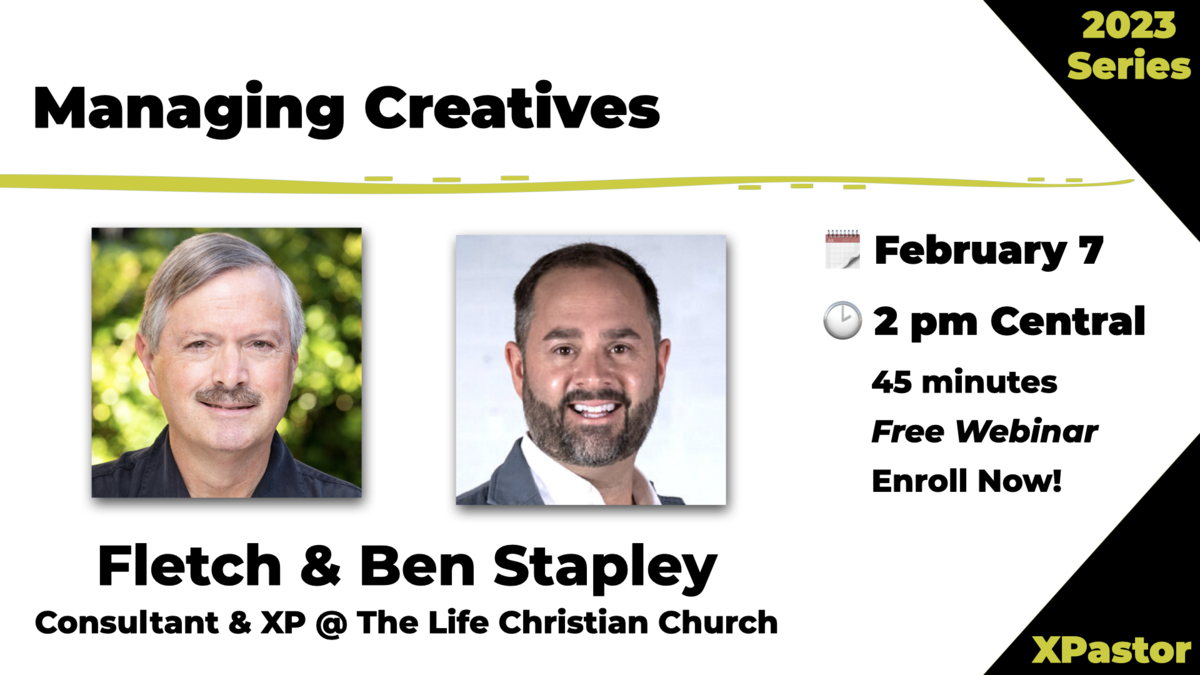As a church leader, you might have a clear vision of your church’s next steps. Do you have the team that will help you get through those steps and each level beyond? Maybe you had your dream team, but you have lost young, promising leaders because you didn’t have the resources or know-how to develop them properly. With a residency program, you can play a pivotal role in the future.
Residency programs are a complex, thoughtful and intentional work. They are are an integral part of building the next generation of leaders. Our mission is to call one thousand churches to consider launching an intentional leadership residency on their staff.
Many times we are asked, What’s the difference is between an intern and a resident? With a resident, we mean one who is intended for full time ministry in a fixed amount of time, such as two years at Leadership Pathway. Interns are important as well, but when I say intern what comes to mind? Probably menial tasks as one determines if they want to consider this type of work. We view a ministry resident very similarly to those in the medical field might view a resident. There’s an assumption they are going to be doing this soon.
So, what if there was a practical, proven way to recruit, support, and develop young leaders to serve churches and advance the Gospel?
At Leadership Pathway, this is exactly what we’re doing all across the country in churches like yours. We have talked to over 2,500 leaders since 2013, which has led us to helping churches architect and launch residency programs. We know how to match the right residents to the church that needs them. What we’ve discovered over the years is that the best candidates become even better when there is specific support for the resident, paired with support for the supervisor, in an environment of a leadership development organization.
The perfect fit residents don’t have to slip through the cracks or assume they aren’t cut out for ministry. In a great program, residents can be coached and trained. They are able to be better prepared for leadership positions.
3 Pillars of Success—Recruit, Support and Develop
Priorities for your residency programs should center around your end goals. Some of the goals we set with churches are:
- Create a system that recruits the right candidates
- Establish a process that reduces young leader turnover
- Assess and develop missing soft skills in young leaders
Here are our proven steps for preparing young leaders for a lifetime of healthy ministry service.
Recruit
Create a process that carefully uncovers the best candidate for each open resident position in your church.
1. Find the Very Best Candidates for Your Church
Start with preparing ideal candidate profiles and your own profile. How often have you or your senior leaders lamented the difficulty of finding, hiring, and keeping young leaders? Young church leaders can be challenging to find and even harder to vet.
To best prepare your church for a resident, make sure you do both an internal and thorough external search. A cross-country search is a value Leadership Pathway has learned and developed over the years. Many churches don’t usually widen their searches this far, but it is important to do this in addition to an internal search. After you’ve created your search, go inward to discover your unique value proposition. Just as you want candidates to put their best foot forward with resumes, etc., you must also do the same by creating your own profile.
To build your church profile, ask and answer these questions:
- What unique value does your church offer to potential candidates?
- What makes you stand out from the rest?
- Why do people want to work for you?
To build your ideal candidate profile:
- Identify characteristics you want.
- Create a list of questions you want the resident to answer when submitting their application.
- Identify the experience that would be most helpful. Keep in mind that interviewing a resident is much different than a typical interview for a team member.
These three things will make it easier to vet the residents as they apply. Once you’ve whittled down the list of residents and you’re ready to interview, make sure you allow time for the following in the hiring process:
- Video interview(s) to assess experience, goals, personality fit. We make sure candidates are assessed with Enneagram, DISC, StrengthsFinder, and/or Thinking Wavelength. It’s also important to know the Enneagram of the supervisor to assess the fit.
- Reference checks.
- Core competencies and strengths evaluations with accredited talent assessments.
Build a Solid Job Description
Unclear job descriptions and narrow job searches can cause bad residency fits down the road. One of the critical things we do for our partner churches when creating a customized residency program is provide successful job descriptions that have worked. The church team can then use these as a template when creating their own. Job descriptions need to be strong, thorough, and like the name suggests, descriptive.
At this stage, the job description should be considered a living document. You may find yourself negotiating new or different descriptions based on your search, candidate interviews, and feedback you receive during the search process.
Strategically Publicize Your Opportunity
Now that you’ve got your profiles and job description set, it’s time to publicize. Make sure to publicize the job description and opening to a broad network of candidate pools. Post your job opening everywhere you can that makes sense—social media, Indeed, job boards, Google ads, etc. An important place to post it is on your church website, too. Don’t make it hard for people who are looking into your church to find details and apply.
2. Hire the Right Resident
Screening and Assessing Candidates
Anyone who has recruited and hired for an open position likely knows the pain of saying yes to the wrong kind of candidates and losing out on the right ones.
When you are down to your final two or three candidates, it’s good to get an outside perspective. At Leadership Pathway, we have found that this outside perspective helps create the best chance for long-term success. It’s one of the roles we help fulfill for our church clients.
Making the Final Choice
There are many factors to consider when placing a candidate, and all of them need close attention at the hiring stage. In the hiring process, you must objectively process each candidate’s risks and benefits. This part of the process can feel quite fatiguing, but it is non-negotiable.
Send the Offer Letter
Good candidates often have many employment offers or options, which means that the timing and quality of incoming proposals will have huge implications upon which offer they accept.
Your offer letter needs to woo the best candidates. We have refined this process so that candidates receive the best impression possible. If you want to land the most remarkable talent, write a remarkable letter— one that is encouraging, welcoming, and makes it easy for your new resident to say yes.
Pro Tip: Once you have interviewed a candidate thoroughly, decide your next steps within two weeks. We help our partner churches make these quick decisions by providing interview tips, proven job offer letter samples, and following up with their Human Resources personnel.
3. Onboard Your Chosen Resident
Prepare Your Team
Did you know that new team members are at the greatest risk of quitting during their first six months of residency? If the start of the residency isn’t done right, it is tough to recover.
To get off on the right foot, inform everyone on the current and surrounding teams about your new resident. Circulate a job description, the resident’s resume, and/or photo. Ensure that your current team understands the importance of hospitality, encouragement, and helpfulness as the resident onboards.
Make sure there is a clear supervisor who will oversee the resident, direct their experience, provide feedback, and coach them to be better ministers. Clarify expectations for all people involved.
Prepare Your Resident
Preparing your resident for what to expect is just as important as preparing your team. One of our partner churches knocked it out of the park recently with this objective. Landing Place Church invited their new resident to come for a visit onsite before taking the position. The reception and continued engagement she received from the staff and even her potential host home during this time was a win-win situation, particularly with the resident having to make a cross-country move. She felt comfortable, welcomed, and excited to step onto the team at Landing Place Church.
Candidates will often back out of the position—even after they’ve signed on the dotted line—if they feel disconnected.
A group in Kentucky, which had tech residents working across the country, learned this lesson the hard way. A couple of the candidates didn’t continue with their ministerial pursuits at this Kentucky-based organization because they hadn’t wooed and communicated with residents before they joined the team and into the first couple of months of partnership. They’ve since made improvements in this area, with Leadership Pathway’s assistance, and have experienced success with their newer residents.
Make sure to prioritize engagement with your ideal resident.
Prepare For the Move
Housing for your resident is a big piece of the puzzle. All of the details must be ironed out before the candidate’s arrival. One missing piece in this support process can result in the candidate backing out.
Our residency programs are two years, however, many first-time host homes will not commit to this. Consider asking your hosts to sign up for a limited time commitment, such as 3 to 6 months. Many times, the family and the resident will want to continue past the limited time commitment.
Support
Create a system of support around your resident and the supervising staff member(s). Plan to build structures of support around the following for your resident and supervisor:
- Basic needs
- Team structure
- Job success
1. Support Your Resident
Basic Needs
Meeting basic needs like housing, transportation, and mental health support is vital to a successful residency experience. For instance, when setting up housing, make sure you set up a host-house agreement and provide feedback to the hosts. Sometimes, adjustments may need to be made once the resident arrives.
Changes to the plan are okay. Flexibility is essential. Make sure to address resident and host needs and concerns as immediately as they arise.
Mental health struggles are being communicated more by Gen Z than any previous generation. If your team is primarily 33-years-old or older, understanding mental health support is critical. We encourage you to offer mental health awareness training for supervisors and encourage every supervisor to have ongoing mental health conversations with their residents. Likewise, it is crucial to be prepared to offer professional mental health support options, should the need arise.
Create a Solid Support Structure
As you can imagine, support for a resident comes in various forms, each playing a critical role in an individual’s success. Let’s take a look at a few:
Staff—A vital component to early and lasting success in residency is support from staff. As part of our work with churches, we help them establish or reinvigorate a culture that views the resident as a fellow team member and not as a temporary worker.
Liberty Live Church in Virginia Beach took this to heart when their worship resident was hired post-residency as a campus worship pastor. This transition might not have been so seamless had they not embraced their resident as a vital part of the team from the first day.
Community—Getting plugged into community determines whether a resident can view himself or herself there long-term, where they can begin to articulate my church vs. their church and be wholehearted in their efforts. Planning out first meals, potential small groups, and introductions to people can communicate to your resident your positive anticipation of their arrival and the desire you have for them to belong. Additionally, it helps get the ball rolling by establishing community.
Church—Connections and support from church volunteers and leaders are just as necessary as staff support. This well-rounded support system from all walks of life will become a resident’s sphere of influence and frequently will serve as mentors to your resident.
A resident at Thunder Mountain Christian Church in Arizona who lived in a host home with an elder now looks at this elder as a great friend and mentor. The resident also worked in a local bike shop for a part-time job that—not only provided a little more income—but allowed him to expand his connections in the community outside the church. Sharing his love of mountain biking while connecting with others was an essential part of the resident building lasting connections.
Events—Kick-off residencies with an event to formalize team inclusion. One of the things we do to help residents acclimate is an Annual Leadership Pathway Residency Kick-Off. Our kickoff is a time to unite and create rapport with residents and their coaches & supervisors around the country. The attendees rally around the shared goal of providing and preparing young leaders for church ministry.
Prepare For Job Success
The more you can offer to help and support your resident, the better. In our work with churches, this is one of our primary focuses.
One way to do this is to provide recommendations for success:
- Books
- Blogs and podcasts on leadership or pertinent topics
- Regular email communication
We work diligently as coaches to both supervisors and residents and provide a bevy of resources as they need them. Our coaching guidebook is full of timely and topical resource links to books, articles, blogs, and more. We see this as integral to the overall success of your program and encourage you to do the same with your own residency program.
Think Through Training and Curriculum Development
A resident’s inability to lead, take initiative, or grow can be because they lack soft skills. A lack of these soft skills can inhibit progress on the job and ultimately result in your resident getting fired or quitting.
Sometimes people just don’t know what they don’t know! We’ve created an entire guidebook around soft skills and work through this guide with our churches.
At Crossroads Church in Maryland, we worked with a member of the church’s leadership team by providing the tools he needed to prompt the proper discussions with his resident. These discussion tools were productive and resulted in growth for the staff member and resident. In fact, the resident went on to secure a full-time spot on the Crossroads ministry team.
2. Support The Supervisor
Busy leaders sometimes let things and people fall through the cracks. It’s not intentional, of course, but we’ve all been there. To keep this from happening, create a structured plan for how to supervise a resident. This plan should include detailed operating procedures, expectations, development, timelines, a feedback loop, etc.
Basic Needs
When we work with churches, we provide many tools and documents to help the chosen supervisor to create support structures for the resident.
We have written guidebooks—one for coaches and one for the resident—to help this process along. A little-known fact is that over 50% of people leave jobs because they have issues with their supervisor. Helping the supervisor establish rapport and guide the resident is critical.
Support for the Supervisor
Success rate with residency is tied to a team effort within your church. When we partner with churches, we kick off supporting the supervisors as soon as the resident has been hired. We provide them with the resident profile, share what to expect, what to plan, and even suggest how to engage with the resident even before their first day. This is a good concept for you to adopt.
Additionally, every year, we unite all residents and supervisors to invite camaraderie and rapport. It’s a great reminder that none of us are alone as a resident or as a supervisor. We can connect and share best practices easily and supportingly. The more you can provide your supervisors with a network of support outside of your church, the better your outcomes will be.
Ensuring Job Success for the Supervisor
Coaching for your supervisors is critical to a good outcome. Even the strongest leaders need advocacy, support, and ongoing development. As part of our support for churches, we provide monthly coaching meetings for the supervisor. The coaching sessions are a time to celebrate wins and figure out what to address next.
- How is the resident doing?
- What soft skills need to be developed?
- How can we do x to accomplish y?
These meetings are an incredible time of growth for the supervisor and set up both the resident and supervisor for success. In addition to monthly coaching, we maintain ongoing email communication to ensure they and their residents are on track. We have webinars they can attend for further leadership training and awareness and offer a Residency Cohort course they can take.
Your plan might not look as intense as ours, but having a structure in place for supporting resident supervisors is key. The more support provided, the better the residency experience will be, and in the end better results will be achieved for your leadership pipeline.
3. Supporting a Residency Program as a Church
If you want a residency program to work, commit to being a teaching church. Think about it in terms of surgical residents and teaching hospitals. Teaching hospitals place great value on training their residents to successfully navigate their profession, become great doctors and surgeons, and become better caregivers. This is what churches need to do as well. As a teaching church, you will place a high value on support, development, and helping your residents become better caregivers.
Here are 6 Markers of a Teaching Church:
- Coaching: Great coaches get more out of us than we could do ourselves. Without this, we revert to the old model of sink or swim.
- Obligation: It is the responsibility of current church leaders to invest in the next generation of church leaders, lovingly handing off the ministry baton.
- End Game: Residency should be designed for the resident to become highly desired and hirable in ministry; anything else falls short of that goal. The effort invested should produce the next generation of church leaders because they are needed like never before.
- Filling the Gaps: Leadership Soft Skills are the very things church leaders get hired and fired over, not their Biblical knowledge or spiritual formation. We emphasize soft skill competencies because these can’t be taught in a classroom or learned in a book, but these are the critical pieces that determine someone’s longevity in ministry.
- Best Practices: Doing ministry hands-on with a team of those more experienced coming alongside a new leader surpasses any learning in the classroom experience; this potentially advances a new leader to be hirable after two years.
- Leadership Development: We don’t need more super volunteers. We need more church leaders who can empower and equip others to lead various teams and groups.
Develop
Our years of experience and expertise have taught us that the resident’s chosen supervisor primarily directs a positive experience with residency. And yet, church leaders aren’t necessarily taught how to coach and manage others in seminary.
1. Monthly Meetings
As you read above, we place a considerable emphasis on monthly coaching sessions with supervisors. We use this time to connect, train, problem-solve, and set goals. We recommend every church, even those whom we do not partner, provide coaching for supervisors.
One of our partners, Waters Edge Church in Virginia Beach, sees their monthly coaching sessions as ways to help them better tap into the natural talents of their residents while fully supporting them and helping them avoid ministerial burnout. In their own words, they had lost many residents “before they instituted a structure for professional development and coaching.” They currently have two residents on board and are dedicated to this process for both of them.
2. Develop Residents Through Training and Assessments
Soft Skills Training
We believe intentional and developmental conversations are crucial to developing young leaders to reach their full potential. Soft skills, like those of leading a meeting or time management, aren’t taught in seminary. Many residents are coming straight from college into a working environment where skills like those need to be modeled and taught.
In our curriculum for churches, we outline and encourage intentional, scheduled conversations between a coach and the resident based on twenty core competencies we have identified as necessary.
Take logistics out of the equation and use video chats to execute the training. At Greenford Christian Church of Ohio, monthly Zoom conversations are customized to both coach and resident.
Resident Assessments
Regular assessments for the resident should be built into your residency program. We recommend them at the following milestones:
- 90 Days
- 1 Year
- 16 Months
- 18 Months
The 90-day assessment should help your resident gain clarity and connection between the work they are doing and ministry. This kind of experience can help residents feel a sense of belonging and purpose. This assessment is vital. If a resident doesn’t quit within the first 90-day time frame, they are more likely to stick around for the duration of their residency and more likely to be employed at a church in the future.
The 1-Year assessment should be intense. We’ve designed a unique half-day experience for this milestone. We see it as a launching pad to a great second year of residency. At this assessment, help your resident gain perspective, identify gaps, and determine what they need to do to close those gaps. Plus, it’s the best time to help them discover the best next steps for their final year of residency.
At the 16-Month mark, the assessment should help the resident to prepare for the next step of interviewing for open positions in the field. Resident assigned tasks might include:
-
- Building a resume to prepare for job interviews.
- Creating a website and introduction video which will help them showcase their desirability and stand out amongst other candidates in the field.
At the 18-Month assessment, focus on encouraging the resident to take necessary steps to pursue a full-time ministry position at your church or another church.
3. Help the Resident Transition to Employment
No one gets to where they are all alone. Together, everyone achieves more. After the two-year residency is complete, it’s time for the resident to integrate fully into your own team or move on to another church as a highly desirable candidate. Encourage your residents in this process.
First Christian Church in Nebraska did this well when their intern moved on to a full-time staff position with another nearby church. They took excellent care to guide their resident to think and act like a leader as they transitioned to the new role.
Rocky Mountain Christian Church in Colorado also did this well as they helped their resident navigate an offer for a student position where the expectations differed from what she had just experienced.
Whether your residents stay with you or move on to new positions, prepare them and help them manage the interview process. Coach them on what questions to expect and even what questions they themselves should ask. Helping young leaders transition to their next level is a critical part of our residency method.
Leaders Training the Next Leaders
Building a residency program for your church is complex, thoughtful, intentional work. Residency programs are an integral part of building the next generation of leaders.
With a residency program, you can empower your church’s vision with young and promising leaders. You can have a team that will help you get through those steps of vision and each level beyond. You can develop next generation leaders with great resources.
Your church plays a pivotal role in the leaders of the future.











